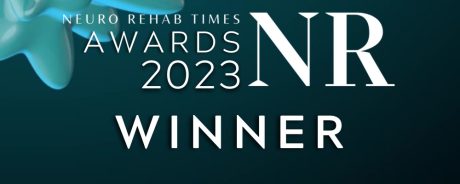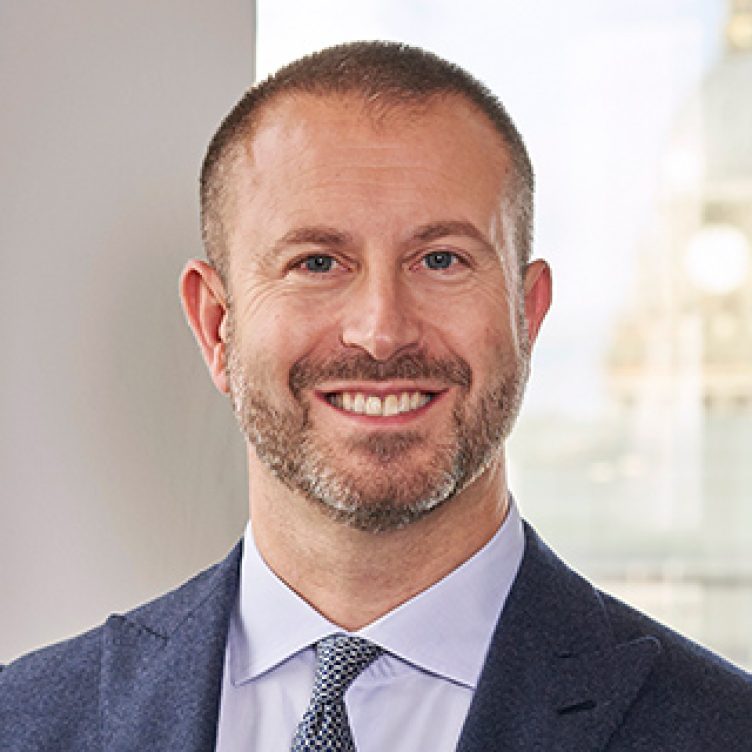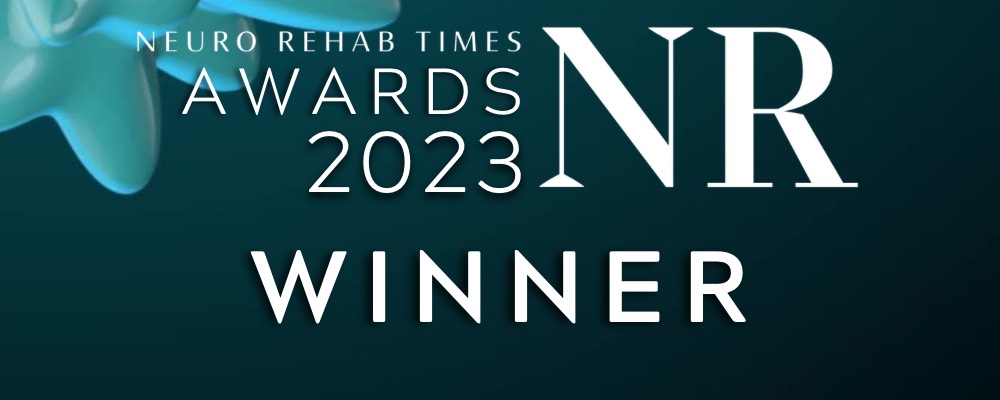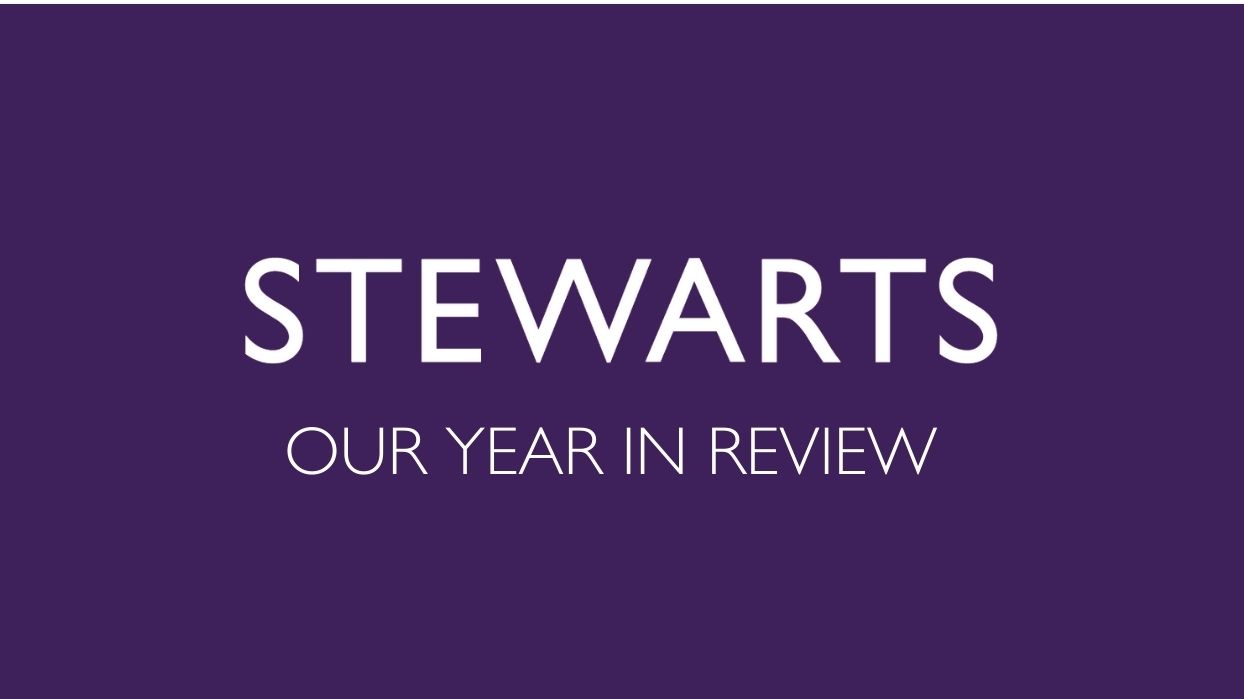At the inaugural NR Times Awards in October 2023, Stewarts was named Brain/Spinal Injury Law Firm of the Year. In an interview following the ceremony, Head of Personal Injury and Interim Head of Clinical Negligence Dan Herman spoke to NR Times about the firm’s approach to caseloads, wellbeing and pro bono work.
As a leading name in brain and spinal injury legal work, Stewarts has built its reputation on the capability and dedication of its team in securing the best possible outcomes for clients, regularly supporting them in achieving genuinely life-changing progress.
But in being named NR Times Brain and Spinal Injury Law Firm of the Year, while its client work and the settlements it secured were hailed by judges, it was in fact other factors which ensured that Stewarts stood out from the very competitive shortlist.
Judges pointed to the measures it takes to protect its staff from burnout and enhance their wellbeing, particularly through limiting each lawyer’s caseload to ten or 12 cases.
Stewarts was also praised for its longstanding commitment to pro bono work, which most recently led to the creation of Onward, a not-for-profit, free of charge service which supports people and families after life-changing injury or illness while still in hospital.
“We were delighted to win the award, but I think what was most pleasing were the comments from the judges about why we were chosen,” says Dan Herman, head of personal injury at Stewarts.
“Sometimes people look for the headline figures, who’s got the biggest numbers of claims, who’s secured the most compensation, but that’s not always the real test of how good a job someone does.
“I think the service provided and the wraparound support we give, both to clients and our staff, is really key to everything we do, and it runs throughout the firm. We’re really pleased this has been acknowledged.”
Wellbeing focus enabling strong client outcomes
While employee mental health and wellbeing is now rightly widely acknowledged by businesses, law is a sector long associated with high pressure and stress for those working within it.
“In a law firm context, we are incredibly busy and there are a lot of pressures placed on us,” says Dan.
“Our team encounters families often in the earliest stages after serious injury when they’re going through hell, struggling to get to grips with their new life and what that looks like. Some of our clients exhibit challenging behaviour because it can be an incredibly difficult and traumatic time for these families.
“Quite rightly, our clients want their cases to be advanced, they want to access rehab, they want the interim payments and their care regime setting up, they want to secure the house they need – and we have to execute that.
“We’re also under pressure in running the litigation because we have an adversarial system in this country. Although we’ve spent a lot of time working on smoothing out a lot of the rough edges on cases by collaborating and working with defendants, inevitably there will be some flash points in cases.
“And while this is our job, we are human. So while our team are fantastic technical lawyers, they’re also people. I can still remember some cases which really affected me on an emotional and psychological level – and we need to make sure our staff feel they’re properly supported to deal with that.”
“The caseloads of our injury lawyers are kept very, very low”
As well as having a number of Mental Health First Aiders across the firm and an employee assistance programme, Stewarts has taken the deliberate decision to limit each lawyer to handling around ten or 12 cases each – far lower than in many law firms.
While case numbers are kept low, settlement levels are high – something Dan believes is a direct correlation.
“I think there’s a definite link between the two,” he says.
“The caseloads of our injury lawyers are kept very, very low; far lower than any of our competitor firms. I spoke with a senior lawyer from another firm recently, and he said he had between 30 and 40 cases – I genuinely don’t know how he does it.
“I think through having small caseloads, it enables our team to go out and see clients at home or in hospital, they’re not tied to their desk. They’re not firefighting across multiple cases, they have that time to manage the cases they’re working on.
“It also means you have the time to see the tangible results of your efforts, whether that be visiting the new house, meeting the care team, or seeing the impact the therapeutic interventions have achieved. All this helps motivate our lawyers and means they can take great satisfaction from their work.
“I also think it means we can drive our cases forward more quickly and proactively. I’m sure our clients like us, but I’m also sure they’d rather we weren’t in their lives – they want their case to conclude as quickly as it sensible to do so. So this way, we have the time to dedicate to it to move things along as much as we can.”
Pro bono work and Onward
Stewarts has been committed to pro bono work for decades, and in 2004 become the first law firm to develop an embedded legal service within an NHS setting at the London Spinal Injury Centre. Initially part of a research project into whether early identification of compensation claims could help expedite discharges and reduce bed blocking, the value of delivering legal advice to patients and families at a very early stage was recognised.
Crucially, the project – approved by the Research Ethics Council – was not centred on whether a person had a claim or not; free advice had to be available to every patient, whether they had sustained a traumatic spinal injury or not. In the event they had a claim, a list of law firms was given to them for consideration.
Whether or not Stewarts was appointed to run the injury claim, its team would still deliver advice and assistance on matters including benefits, Powers of Attorney, employment and family matters free of charge.
“That was set up nearly 20 years ago now, but still informs everything we do,” says Dan.
“I’ve always struggled with the two-tier system we effectively have in this country, where I can go and see two patients in neighbouring beds in a hospital. One patient has a claim, and they’ll have all these options available. But the other patient doesn’t have a claim – and the options for them are much more limited.
“By increasing what is available to everyone, we can try and create a slightly more level playing field – it’s never going to be completely level, but we will do what we can and certainly widen what is on offer to those without a claim.
“Whether someone has a claim, or uses us for their claim, is not the motivation for us. We’re happy to roll up our sleeves and get stuck in.”
Stewarts now has a dedicated pro bono team, which consists of seven lawyers who specialise solely in free work – committing thousands of hours to supporting seriously injured and ill patients and their families with legal advice on a range of issues at no cost to them.
Working with ten NHS Trusts nationally, and seeing the patient need first-hand, Stewarts realised the need to go even further with its pro bono commitment – leading to the creation of Onward.
“Some hospitals were saying to us ‘We love the work you’re doing, but we think our patients need a broader service’. So we realised there was more we could do,” says Dan, who is also a director of Onward.
Creating a service – again, wholly free of charge to the patient – which delivers financial, emotional, legal and practical support from the very earliest days post-injury or illness, Onward revolves around the principles established from the very earliest days of working in the London Spinal Injury Centre.
With caseworkers working in each of the hospitals where Onward is offered – whose posts are funded directly by the not-for-profit organisation – they can identify the needs of patients and families at a very early stage, so help is on hand directly and quickly.
“Those caseworkers are then the first point of contact for patients and their families, for whatever they might need,” says Dan.
“It could be something very simple, but which is causing them great stress, like how do I apply for my blue badge? How do I get a driving assessment? All kinds of concerns where they can really benefit from quick, practical advice – you just don’t know these things until you find yourself in the situation where you need them. So this is a very important frontline resource.”
“Pro bono work and the ethos behind that is part of Stewarts”
Among its raft of offering to patients – including counselling for patients and families, peer support, and emergency financial support via the Stewarts Foundation – is access to case management, something that is usually solely the domain of those who have a claim, but has been made available to all patients through Onward’s recently-created partnership with Active Care Group.
“We’ve been through ten plus years of austerity during which time social services and NHS budgets have been slashed, ” says Dan.
“I think the NHS is still amazing with the acute care it provides to patients – but we all know that post-discharge, your outcomes vary greatly if you’ve got a claim, in terms of the rehab options that are available.
“But at the heart of all this is the idea that you can access all the strands of the Onward service whether or not you’ve got a claim. Sometimes, we’re actually helping patients for free who have instructed another firm to do their compensation claim – but that’s what the service is about.
“Pro bono work and the ethos behind that is part of Stewarts and something we’re all committed to – and ultimately we’re just really pleased to be helping people who need us.”
You can find further information regarding our expertise, experience and team on our Personal Injury and Clinical Negligence pages.
If you require assistance from our team, please contact us.
Subscribe – In order to receive our news straight to your inbox, subscribe here. Our newsletters are sent no more than once a month.




